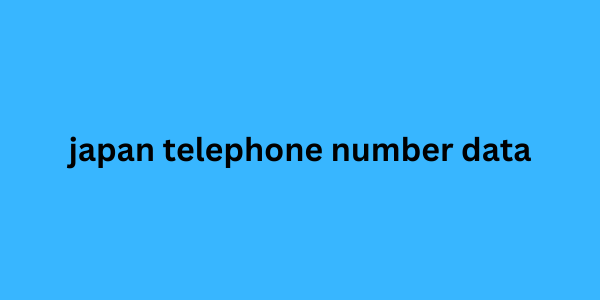When it comes to implementing new technologies to modernize your business process structure, one of the biggest hurdles you face is interacting with the tools you already use.
When it comes to CRM ( Customer Relationship Management ) , some rather common doubts concern the differences between the management software already in use and the new software, which one to use to do japan telephone number data what, which integration method is the most suitable for connecting the systems and why a company should carry out this “unification” operation.
In this article we will analyze the differences between these two tools, why a management system alone is not enough and the advantages of integrating the latter with the CRM .
Table of Contents
The differences between management and CRM
CRM
Management or ERP
Challenges of integrating management and CRM
Solutions to integrate management and CRM
Integrate customer data
The advantages of integrating management and CRM
Conclusions
The differences between management and CRM
To better understand the benefits of CRM integration and what is the most effective method to complete this process, it is essential to understand what the role of this system and the management system is within the company.
The CRM
CRMs are valuable assets for businesses across industries. These systems are responsible for collecting customer data that can help marketing, sales, customer service, and operations teams better understand how customers interact with the company.
In fact, within them, it is possible to trace the entire relationship that exists between any member of the organization and the contact, whether it is emails , calls , notes or exchanges of various types. From the data contained within it, the system will be able to propose reports and statistics useful to all members of the company, from management to individual sellers, to evaluate the individual path and as an organization, formulate new strategies and set new objectives.
>>>Read also: How to choose the CRM for your company
Furthermore, the data collected helps to create a 360° view of the customer and, consequently, to provide each one with the right products and services. This creation is possible only when the CRM system is fully integrated with the entire technology stack of the company, be it e-commerce, logistics management system or invoicing.

To sum up, here is a list of the tasks that CRM supports:
Track the entire sales cycle: What actions are required to convert a prospect into a customer? How many emails, phone conversations, or meetings are needed?
Managing customers from the initial point of contact: Where did the contact originate? (Website, phone call, or other method? Who transformed it?)
Automate sales activity management: to support sales in organizing calls and meetings through tasks, reminders and sequences; to let prospects receive information clearly and efficiently.
Continuously improve interactions by collecting data about prospects and customers: data such as contacts and their relationships, who is the decision-maker and when to contact leads can be entered into the system to complete the picture of interactions. As for quantitative data such as turnover trend, email opening rate, ROI or conversion, they are calculated directly by the system.
Integrate marketing and sales activities: for example, monitor the ROI of marketing campaigns to determine how many leads have been generated , or evaluate the flow of visitors to the site that the current inbound marketing strategy or paid ads bring.
Integrate email: Get a single contact history with your leads or customers, so you can keep your entire organization on top of your communications with them.
Make accurate sales forecasts: a rich reporting and forecasting system to always have the organization's progress under control.
Customer Service Integration: In complete CRMs like HubSpot's, in addition to marketing and sales, you can also integrate your company's customer support system.
Choosing the right CRM for your organization is an important decision that must be thoroughly evaluated, and above all that requires the support of a partner with the right experience. Exelab takes your company's journey towards more technological and effective business processes seriously, which is why we don't leave you alone in this choice.
Click below to download our guide “ how to choose a CRM in 2022 ” and find out how to best prepare for this journey:
